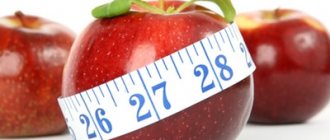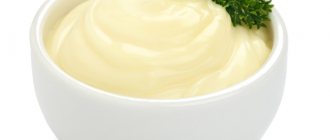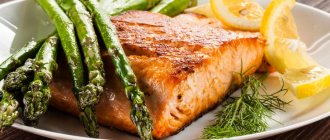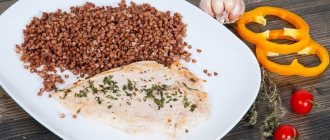Is it possible to give up meat and become a vegetarian without harm to your health? Where to begin? Many vegetarians would probably laugh kindly at this question and ask a counter question: “How can you remain a meat eater without harm to your health?”
Most people who switch to a vegetarian or vegan diet report improved health (confirmed by tests), increased performance and energy levels, notice that they look better and feel better.
Many people are aware of the benefits of vegetarianism and support it from an ethical point of view, and even try to give up meat for a while, but soon return back to old habits.
How can you become a vegetarian, so that you don’t have a painful desire to eat at least a small piece of sausage or barbecue, so that you don’t feel drawn to old habits?
How to become a vegetarian - where to start, so that it’s easy Secrets of a gentle transition to a new diet Why you can’t completely give up meat at once How to replace meat The magical properties of spices Do I need vitamins or dietary supplements Why do they always offer me meat? Personal experience: 30 years of vegetarianism 6 best recipe books for vegetarians
How to become a vegetarian - where to start to make it easy
Let’s first look at what “thin” and “dense” nutrition is. Food that is digested easily and quickly is fine nutrition, and food that takes a lot of time and energy to digest is dense nutrition. The lightest and most subtle nutrition is freshly squeezed juices. Next come fruits, berries, raw vegetables, cereals and cereals, cooked vegetables growing underground (potatoes, carrots, beets), legumes, dairy products, and finally fish and meat.
The closer a nutrient is to the sun, the easier it is to digest and the more energy it is filled with. Plants receive the energy of the sun directly, while animals receive it indirectly, so there is less subtle energy in meat. The most energy-filled foods are fresh fruits, vegetables and sprouts.
If you are used to eating meat or fish every day, you don’t need to rush into the now popular “detox” and immediately switch to juices, fruits and sprouts. Maybe you can live like this for a few days, but then it will become difficult for you - irritability will appear, everything around you will make you angry. In addition, if you suddenly switch to a very light diet, the process of cleansing the body may go too quickly, and you will not feel very good for some time.
How to replenish the microelements contained in meat?
Meat is rich in many useful microelements, but especially: protein, vitamin B12, zinc, iron, omega 3 amino acids. Their deficiency can lead to undesirable consequences. Beginning vegetarians need to learn how to balance their diet in order to replenish all the necessary supplies. Next, we present a table with a list of plant products containing the most important microcomponents.
| Microelement name | Product name/content per 100 g |
| Protein | Lentils (25 g), nuts (17-20 g), legumes (6-10 g), chickpeas (19 g), seeds (21 g), sesame seeds (21 g), green peas (5 g), broccoli (3 G). |
| Iron | Beans (72 mg), hazelnuts (51 mg), oatmeal (45 mg), mushrooms (35 mg), halva (33.2 mg), wheat cereal (31 mg), peas (20 mg), seaweed (16 mg), dried apricots (11.5 mg). |
| Zinc | Wheat germ (17 mg), sesame (10.2 mg), hemp seeds (8.8 mg), poppy seeds (7.9 mg), pumpkin seeds (7.8 mg), soy powder (6.6 mg), pine nuts (6.5 mg). |
| Vitamin B12 | Caramel, brown mushrooms, mashed potatoes, almond milk, soy. |
| Omega-3 | Flaxseed oil, hemp seeds, flax seeds, walnuts, soybean oil, beans. |
| Calcium | Spinach, seaweed, sesame, all types of nuts, flax seeds, garlic, all types of cabbage, apricot, figs, raisins. |
It is important to note that vitamin B12 is found in rather small quantities in plant foods; vegetarians need to take methylcobalamin as a supplement to avoid deficiency of this important vitamin, preventing the development of anemia.
As for Omega-3, plant foods contain only alpha lipoic acid (ALA), the other two most important acids EPA and DHA can be converted from it, but only 15-20% of its amount. This also serves as a signal for the development of a deficiency of these acids.
Vegetarians #SEKTA
Maria Kardakova, family nutritionist, biomedical technology engineer
I haven’t eaten meat since 10th grade, that is, for almost 10 years. I can’t say that this decision was conscious at the very beginning; it was based more on ethical principles than on the desire to make my diet smarter and healthier. Only after my student period did my desire to be a vegetarian grow into something more mature, and I associate this with pregnancy, when I began to think about how I and my baby would have enough of all the necessary elements from what I eat, because I would have to enlist the support of my I was unable to find a doctor on this matter.Now I consciously do not eat meat and dairy products, but I do eat fish. This is due precisely to the internal needs of the body, and not to the desire to experiment. When you realize that you are feeling good, when at the next blood test everything is normal and you are happy with everything you eat, this means that everything is correct and that the body is comfortable.
Many people ask me: are my children and husband vegetarians? I have never tried to attract anyone to vegetarianism, and even many of my friends are not aware of this. But my husband hasn’t eaten meat for 3 months now. He decided to try, as an experiment, to give up it for a period of a little longer than a detox week. And now a man who a year ago could not pass by a shawarma shop without salivating profusely bakes the fish himself in foil. We do not involve children in conscious vegetarianism, although our family diet is quite balanced. From time to time we buy chicken meat. And in kindergarten, despite the existing opportunity, we do not limit their diet to vegetarian. They make excellent choices themselves and know what they need, no worse than my husband and I. However, among my friends there are parents who, from childhood, teach their children to respect all living things, to love nature and, at the same time, to be responsible for their health.
Elena Degtyar Doctor of Biological Sciences, sports nutritionist, head of the Scientific Department of #SEKTA
I stopped eating meat about a year ago. This step, despite my many years of desire, seemed impossible to me. I loved meat too much. Everything happened by itself, without any complaints or refusals. Even now I know that I am ready to eat if I really want it.I’ll say right away that the reason for giving up meat was health considerations, first of all, and only secondarily, humane ones. There are too many scientific articles and studies that indicate that vegetarians are healthier and live longer. Fish (occasionally), eggs and dairy products are still present in my diet. I check my vitamins once a year and take into account that it takes effort to get some of them from plant sources. However, I feel healthier and lighter, and in the future I plan to reduce dairy products to a minimum.
Katerina Vetrova SEKTAFOOD Msk
I haven’t eaten meat or fish for almost 8 years. In 2007, I stopped liking meat and stopped eating it, and in April 2008 I gave up fish and eggs. During this time, I managed to be both a vegan and a raw foodist, but in the end I simply returned to the diet in which I was comfortable: without meat and fish. Sometimes I eat dairy products and eggs, a lot of vegetables, grains, legumes, and sometimes fruits. I feel very light, there is no heaviness after eating, it became easier for me to get up in the morning, and the most important thing, which many are afraid of, is that the important blood test indicators are normal. If the diet is balanced, then such food is no worse than the meat diet we are used to.
Ekaterina Kochergina Curator of SEKTA
Experience: about 2 years. I don’t eat meat, poultry, or fish, but I do eat dairy and very rarely eggs.I became a vegetarian not because of fashion trends and not on purpose at all, to be honest. It happened somehow naturally - I just realized one day that I hadn’t eaten meat at all for the last couple of months, and decided not to return it, because I felt great and light! And when I came to the sect for my 9 weeks, after a month I realized that I was too lazy to cook fish, so it disappeared from the diet by itself. But I found many other interesting products for myself.
For me, being a vegetarian is something of a challenge. Sometimes I want some new tastes, and every time I come up with more and more interesting recipes, surprising my friends and family.
Tatiana Netsimailo Curator of SEKTA
They say that you stop being a smoker when you stop counting the days after your last cigarette. According to the same theory, I can already be called an avid vegan. The “experience” of giving up animal products and loving legumes is not that long, but if you remember, now it’s close to two years. Before that, I gave up meat for a year back in high school, but at that time, apparently, I was not yet ready for this, and now I also believe that if you really need to give up animal food, then it will happen naturally, comfortably.I can be considered an “ideal vegan”, since in general, for me, meat is not a bad product, and the rejection of it and other animal products is connected to a greater extent simply with my feelings. At the same time, I do not and do not share the opinion that this should be particularly emphasized in oneself or others. There are simply those who love cheese or do not like strawberries, and there are people who do not eat meat, this does not make one or the other worse or better.
Technically, it is a little more difficult for a vegan or vegetarian to balance their diet, but this is only at first glance. Having studied nutrition issues a little, you can always find the optimal diet and favorite foods for yourself, and this, in principle, is necessary for everyone, regardless of the presence of steak or tomatoes in the diet.
Listen to the audio version of the article:
Literature: 1. Health effects of vegan diets.Craig WJ1. 2. Nutrition concerns and health effects of vegetarian diets. Craig WJ1. 3. Effects of plant-based diets on plasma lipids. Ferdowsian HR1, Barnard ND. 4. Vegetarian and vegan diets in type 2 diabetes management. Barnard ND1, Katcher HI, Jenkins DJ, Cohen J, Turner-McGrievy G. 5. Type of vegetarian diet, body weight, and prevalence of type 2 diabetes. Tonstad S1, Butler T, Yan R, Fraser GE. 6. Cardiovascular disease mortality and cancer incidence in vegetarians: a meta-analysis and systematic review. Huang T1, Yang B, Zheng J, Li G, Wahlqvist ML, Li D. 7. Nutrition in adult and childhood cancer: role of carcinogens and anti-carcinogens. Mosby TT1, Cosgrove M, Sarkardei S, Platt KL, Kaina B. 8. Dietary patterns and risk of pancreatic cancer in a large population-based case-control study in the San Francisco Bay Area. Chan JM1, Gong Z, Holly EA, Bracci PM. 9. Position of the American Dietetic Association: vegetarian diets. Craig WJ1, Mangels AR; American Dietetic Association. 10. nutritiondata.self.com 11. Journal of the AMERICAN DIETETIC ASSOCIATION 12. Vegeterian Food Pyramid 13. GOING VEGAN: Eat a healthier diet, lessen your environmental impact and save money 14. Real Vegan Children 15. People are Finally Falling out of Love With Meat (INFOGRAPHIC)
What changes should we expect?
According to the American Academy of Nutrition and Dietetics, vegetarians and vegans have a lower risk of certain diseases, including coronary heart disease, type 2 diabetes, hypertension, some types of cancer and obesity.
Replacing meat products and animal fats with vegetables, fruits, legumes, whole grains, nuts and seeds that are rich in fiber can reduce your intake of saturated fat. This normalizes cholesterol levels and improves serum glucose levels.
Compared to other vegetarian diets, vegans tend to have lower serum cholesterol levels and lower blood pressure, which reduces the risk of heart disease.
“Many people say that veganism helps improve skin condition and become more resilient. But there are also examples of people for whom everything remains the same: skin problems and constant fatigue. “Everything is individual, and we need to wait for new research to talk about similar consequences of a vegan lifestyle.”
Anya Sakharova
How to diversify the menu to make it delicious?
Veganism is not about bland food and giving up all your favorite dishes. You can make various interesting and tasty recipes from plant products. For example, prepare vegetable or mushroom soups, replace minced meat in your favorite Bolognese pasta with soy, and when preparing baked goods, give up cow’s milk in favor of rice or coconut milk.
Vegan recipes can be found on the portals Vege.one, Vegetarian or in Jamie Oliver's books “Jamie's Choice. No meat”, Katerina Sushko “No fish, no meat”.
“There are a lot of materials about how someone ate plants for a month and this is what happened (nothing). But I liked this friendly article because it is about how a nutritionist tried eating only vegan food for a week. Ideal to show or tell to parents. Moreover, there are pictures inside with beautiful and varied dishes.”
Anya Sakharova
Buying groceries
Naturally, when switching from traditional cuisine to vegetarian, the ingredients for cooking also change. It is important not only to determine how to become a vegetarian, but also where to purchase products for a new diet.
We recommend starting with our list of easy vegan meals to get an idea of what ingredients you'll need. The list offers a dozen quick and easy recipes. You can find plant-based ingredients to cook with in supermarkets, natural food stores, farmers' markets and online.
Natural food stores and supermarkets
In all supermarkets you can find products for a vegetarian diet: beans, rice, pasta, soy milk, fruits, vegetables, etc. But there are better places to purchase such goods. When it comes to offering a variety of quality, fresh vegetarian products, any supermarket is second to none compared to a natural food store.
It is believed that prices in such stores are quite high. In fact, purchasing products from them is often more profitable than in supermarkets. Wholesale departments offer favorable conditions, and you can significantly reduce costs when purchasing beans, nuts, and cereals in large quantities.
Online stores
Currently, in almost every region, it is possible to place online orders from online stores specializing in vegetarian products.
Online stores offer a wide variety of plant-based products: energy bars, fortified breakfasts, cookies, nutritional yeast, dried vegetables, fruits and berries, seeds, nuts, etc. In addition, there is often a selection of vitamins and supplements, cosmetics for vegetarians, equipment and special devices for preparing vegetarian dishes. Many sites hold promotions and sales, and have special discount codes for regular customers. Some online stores offer free delivery for purchases over a certain amount.
Every year there are more such stores online. This is a convenient option for purchasing necessary goods without leaving home. In addition, a novice vegetarian has the opportunity to try new or rarely found vegetarian products in local stores.
What if I can’t live without meat?
After the first thoughts about switching to veganism, you can look at your usual menu, notice a lot of meat products in it and be horrified: “I constantly eat different types of meat, how is it even possible to give it up?” Indeed, meat contains a number of important beneficial substances: for example, vitamin B12 is found only in animal foods, and iron from meat products is absorbed better than from plants. But this does not mean that you cannot live without meat. This means that you will need to make sure that your body is getting all these nutrients from other sources.
“I think that when people say something like, ‘I can’t live without meat,’ they’re probably talking about a craving for a certain taste.
An unwillingness to change habits is normal: now many people spend a lot of effort on maintaining their mental health and simply cannot afford to take on additional obligations to comprehend and develop new habits. In addition, there are people who are allergic to some plant products, and it is even more difficult for them to adapt to veganism.
But such examples are rather rare, the exception. More often you hear: “I can’t give up meat because I do hard physical or intellectual work.” But that’s just a bias against plant-based foods.”
Anya Sakharova
A balanced and varied plant-based menu can be no less nutritious than a meat-based one. For example, a study of the effect of a vegetarian diet on the performance of athletes showed that plant sources of protein (legumes, soy, nuts, seeds) can support performance in the same way as animal sources (i.e. meat).
Moreover, plant-based diets have their advantages: vegetarians, on average, get more fiber, folic acid, vitamins C and E, potassium, and magnesium from their food. And vegan diets tend to be lower in saturated fat and cholesterol and higher in dietary fiber.
Pros of vegetarianism
- Health. Eating a bland vegetarian diet will almost certainly benefit your health, as it is one of the most balanced diets approved by the WHO. The benefits of vegetarianism lie not only in the prevention of many diseases, but also in the ability to cope with existing difficulties, for example, digestive disorders or diseases of the cardiovascular system.
- Normalization of weight. Giving up meat often means reducing your caloric intake. Eating healthier and more varied foods helps reduce body weight.
- Improved daily well-being. Many people note that with the transition to vegetarianism, they forgot about problems such as fatigue, headaches, difficulty falling asleep and concentrating. This is a "side effect" of a healthier diet.
- Variety of food. Meat is considered an ingredient that makes any meal delicious. But with the choice of vegetarianism, people are discovering many new recipes and ingredients that were previously simply out of sight.
What else do vegans give up?
Let's fix it: vegans are against eating animal products. This is due to ethical considerations, the main thesis of which is that harming animals is not cool. But their exploitation does not end with their inclusion in the menu.
Vegans often choose clothing and shoes made from plant-based or synthetic materials, ethical cosmetics, and also refuse to visit zoos. Sometimes switching to veganism can become an impetus for studying the problem of animal protection in the world, country or city.
“If you are an ethical vegan, you are unlikely to buy new leather boots or anything that causes animals to suffer. On the contrary, try, if possible, not to purchase similar clothing or cosmetics that have been tested on animals. I think this is very important."
Anya Sakharova
This then begs questions like: “And if I continue to wear the fur coat that I bought two years ago, should I not be called a vegan?” But, firstly, no one forbids you to call yourself as you feel comfortable. And secondly, you should always proceed from your capabilities. If this fur coat saves you from the cold, then you shouldn’t reproach yourself for wearing it. Throwing it away will not return the resources spent on its production. In general, purchases from the past can hardly be considered something sinful - after all, back then you had completely different views, and that’s normal.
Nutrition after switching to a vegetarian diet
In the modern world there is a large amount of vegetarian food, both semi-finished and fully prepared, which can be found in supermarkets. The products are easy to purchase at markets and grow yourself. But in order for this food system not to seem boring, it is worth diversifying the menu by choosing interesting recipes for breakfast, lunch and dinner.
Recommendations for product selection
- Soy products can help replace meat. In modern industry, soybeans are used to make a lot of products that can significantly diversify the menu.
- Gradually, the menu needs to include those products that previously seemed exotic. These are, first of all, a variety of fruits: pomelo, papaya, carom, etc.
- Cereals in the diet should also be varied. Interesting and very tasty dishes can be prepared from millet, barley, quinoa, alfalfa, etc.
How to create an optimal diet?
- To improve digestion and increase the absorption of microelements into the body, you should drink a glass of warm water in the morning, adding a little lemon juice to it. This drink can be consumed before every meal.
- Legumes are not recommended for breakfast, as they significantly overload the body. But buckwheat and oatmeal with dried fruits for breakfast are quite suitable. You can add flaxseed oil to such porridges.
- Vegetarians are advised to eat fruit for breakfast. In summer they should be fresh, and in winter you can periodically eat dried fruits for breakfast. It is worth paying attention to recipes for dishes with them.
- Lacto-vegetarians can eat yogurt, drink milk or fermented baked milk in the morning. It is recommended to drink milk warm; you can add cinnamon to it.
- Sweets are also better included in the breakfast menu. These can be honey-nut candies, dried fruits, dark chocolate.
- It is recommended to regularly prepare smoothies and cocktails for breakfast from various vegetables, berries, and fruits.
Breakfast Recipes
Carrot and orange smoothie
You will need 200 g of fresh carrot and orange juice, 4 peaches, 2 tbsp. l. flax seeds, 1 tbsp. l. grated ginger root. All components must be blended in a blender until the mass becomes homogeneous.
Pumpkin smoothie
You will need 200 g pumpkin pulp, 100 g apples, 2 tbsp. l. honey, a pinch of cinnamon. Pre-clean all components, mix and grind in a blender until smooth. Can be diluted with water if the mixture is too thick. Cool in the refrigerator.
Banana and strawberry smoothie
You will need 6 large strawberries, two bananas, 200 ml orange juice, 1 tbsp. l. flax seeds. The products must be cleaned and mixed in a blender to obtain a homogeneous mass.
Dinner
Soups made from peas, beans, lentils, as well as mushroom and pureed vegetable soup are suitable as a first course.
As a side dish, you can prepare potato dishes - mashed potatoes, baked potatoes, a variety of water porridges. Vegetable dishes are an indispensable component of a vegetarian's lunch. You can cook vegetable cutlets with semolina or starch. In second courses you need to use different vegetable oils - flaxseed, olive, sunflower.
Dinner
For dinner, it is recommended to prepare dishes from chickpeas, peas with the addition of stewed onions and herbs. There are also numerous recipes for casseroles with dried fruits, nuts, berries and fruits. Pies with a variety of fillings are also suitable. In the evening, it is recommended to eat more vegetables, except potatoes.
Varieties
Vegetarians are usually called those who do not eat meat and fish. However, there are several varieties of this power system.
- Ovo-vegetarians consume eggs.
- Lacto-vegetarians include dairy products in their diet.
- Lacto-ovo vegetarians consume both milk and eggs.
- Pesco-vegetarians eat fish and seafood.
- Pollo-vegetarians consume chicken but exclude red meat.
- Vegans eat only plant-based foods.
- Raw foodists can only include plant foods that are not thermally processed in their diet.











